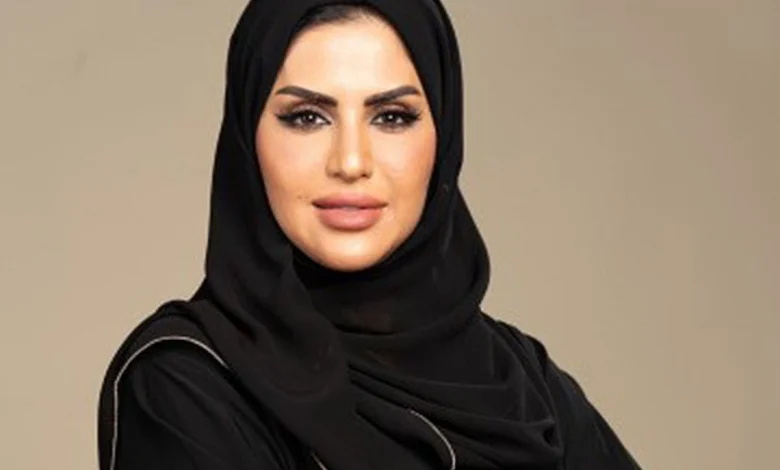
Emirati Nuclear Pioneer Muna Al Naqbi Leads Next-Gen Energy Experts
UAE’s Peaceful Nuclear Energy Program has achieved remarkable gender diversity with women making up 20% of its workforce. These talented professionals excel in engineering, reactor operations, and nuclear safety. Muna Al Naqbi emerges as a trailblazer who leads a nuclear-ready generation in the United Arab Emirates. Her contributions prove vital now as the Barakah Nuclear Energy Plant reshapes the scene of nation’s energy sector. The plant generates clean electricity continuously and meets up to 25% of the country’s power needs.
Emirati women have made remarkable strides in technical fields. Their presence in engineering and technical sectors has grown impressively from 17% in 2015 to over 35% by 2025. FANR’s workforce statistics paint an encouraging picture – women constitute 44% of employees and hold 43% of leadership positions. These numbers surpass the global average of 22%. ENEC’s Diploma in Nuclear Technology provides a vital two-year pathway that prepares UAE national high-school graduates to become local operators and technicians at the Barakah plant. The UAE builds an eco-friendly energy future with women’s leadership at its heart through these programs and Al Naqbi’s guidance.
Muna Al Naqbi builds UAE’s nuclear training pipeline
Image Source: Gulf News
Muna Al Naqbi became the life-blood of Emirates Nuclear Energy Corporation’s mission to develop homegrown nuclear expertise. Her experience started during the UAE’s peaceful nuclear program’s early days and laid the groundwork for the nation’s energy transformation.
How Al Naqbi joined ENEC in 2011
Al Naqbi’s nuclear career took off in 2011 when she joined ENEC with the first group of Emirati professionals in the country’s new nuclear sector. She worked in human resources before seeing a chance to contribute to a national priority project. Al Naqbi went through intensive specialized training at home and abroad. This expertise later proved to be a great way to get knowledge for building local capabilities.
Her role in developing the Systematic Approach to Training (SAT)
After her original training, Al Naqbi played a key role in creating ENEC’s Systematic Approach to Training (SAT) methodology. This complete framework ensures that training programs meet nuclear operations’ specific needs. She helped create a well-laid-out learning environment as the Training Program Developer. The system analyzes job requirements, designs training materials, and implements evaluation systems to verify competency. This approach has become the foundation of ENEC’s training structure.
Designing programs to meet international standards
Al Naqbi led the development of training programs that arranged with International Atomic Energy Agency (IAEA) standards. She designed specific curricula for technical positions, from control room operators to maintenance technicians. She worked with Korea Hydro & Nuclear Power (KHNP) to adapt global best practices to UAE’s needs.
ENEC created clear qualification paths for Emiratis entering the nuclear sector under her guidance. These programs blend theoretical knowledge with practical applications. Graduates now have the exact skills needed for safe nuclear operations. The training pipeline provides qualified personnel for Barakah’s long-term operations. This reduces the need for international expertise while maintaining world-class safety standards.
ENEC develops local talent through education and simulation
Image Source: NS Energy
The Emirates Nuclear Energy Corporation (ENEC) has created complete educational pathways that build a sustainable national workforce for UAE’s nuclear sector. These initiatives help maintain operational excellence at the Barakah Nuclear Energy Plant throughout its 60-year projected lifespan.
Diploma in Nuclear Technology (DNT) as a key entry point
ENEC’s talent development strategy centers on the Diploma in Nuclear Technology (DNT), a 24-month entry-level program for high-performing UAE National high school graduates. The program started in September 2023 and creates a direct path for young Emiratis to join Barakah as Local Operators. Students learn science fundamentals, engineering basics, and nuclear plant systems. The Ministry of Education has accredited the DNT through the National Qualifications Center, which gives graduates nationally recognized credentials. Engineer Ali Al Hammadi, CEO of Nawah, says “This program is an excellent chance for bright young high school graduates to receive high-quality training to become part of one of the most important industries for clean electricity generation”.
Partnerships with KHNP and Abu Dhabi Polytechnic
ENEC built mutually beneficial alliances with Korea Hydro & Nuclear Power (KHNP) and Abu Dhabi Polytechnic. Their collaborative effort created the Higher Diploma Program in Nuclear Technology, which spans six semesters. Students spend four semesters learning theory at Abu Dhabi Polytechnic and two semesters getting hands-on training at KHNP facilities in Korea. The curriculum covers reactor operation, chemistry, instrumentation, mechanical systems, and radiation protection. The partnership shows impressive results with 350 Energy Pioneers graduates and 124 more students in training. Dr. Ahmed Alawar, Director of AD Polytechnic, notes “The cooperation between ENEC and AD Polytechnic started with the development of the Higher Diploma in Nuclear Technology program three years ago… with 17 students already graduated from the program and a total number of 270 enrolled”.
Simulator-based learning during the pandemic
Barakah Plant’s training facilities feature innovative technology, including four full-scope APR1400 simulators that mirror exact operating conditions. These advanced systems rank among the world’s most sophisticated nuclear training devices and let operators practice in simulated situations safely. ENEC adapted to pandemic restrictions by investing in virtual education technology. The Barakah Training Center now has an Orchid IX system that provides a world-class 3D immersion environment where users interact with plant components at near-retinal resolution. This digital upgrade merges simulators with the Plant Process Information system and allows Main Control Room operators and Local Operators to train together. This innovative approach shows ENEC’s steadfast dedication to developing qualified personnel despite external challenges.
Women rise in nuclear roles at Barakah and beyond
Image Source: LinkedIn
The UAE’s nuclear sector has moved away from its male-dominated past. Female professionals now hold key positions across the Emirates Nuclear Energy Corporation ecosystem.
20% of ENEC workforce now women
Women make up about 20% of ENEC’s workforce. This percentage ranks among the highest in the global nuclear energy industry. The Federal Authority for Nuclear Regulation (FANR) shows even more impressive numbers. UAE women represent 44% of FANR’s total workforce and hold 43% of leadership positions. This is a big deal as it means that these numbers are well above the global average of 22%. FANR’s flagship Developee Program proves the growing female presence with 21 women among its 35 graduates.
Mentorship and career path visibility
Al Naqbi points out that “Support and encouragement make a difference.” She believes peer networks and youth councils help young engineers see their future in the industry. Women at Barakah now take on crucial roles as Senior Reactor Operators and Fuel Load specialists. ENEC’s formal and informal mentoring programs, combined with coaching opportunities, address their female employees’ unique needs. These programs aim to make Barakah “a female choice of employment” by showing clear paths for advancement.
WiN Middle East Chapter launched at COP28
The UAE’s Women in Nuclear (WiN) chapter started in 2018 and grew into something bigger at the UN Climate Change Conference. The WiN Middle East Chapter’s official launch happened during COP28 in 2023. This regional platform strengthens women through knowledge sharing and cooperative efforts with international peers. Women can now lead breakthroughs in clean energy solutions across the region.
Al Naqbi inspires next-gen energy experts
Muna Al Naqbi goes beyond her technical work to inspire the next generation of Emirati nuclear professionals. She creates opportunities for aspiring energy experts through mentoring and developing targeted programs in this specialized field.
Her message for Emirati Women’s Day: Be curious and ambitious
The UAE celebrates Emirati Women’s Day under the theme “Hand in Hand, We Celebrate 50 Years.” Al Naqbi shares clear advice with newcomers to the industry: “Be curious, be ambitious and stay determined. Explore nuclear energy early; the work is vital to our energy security and sustainability”. She takes a hands-on approach that encourages young engineers to use peer networks and youth councils. These connections help them picture themselves in technical roles.
Arranging training with IAEA standards
Al Naqbi focuses on upholding strict standards recognized by the International Atomic Energy Agency (IAEA). Her training programs follow the IAEA-recognized SAT cycle—analysis, design, development, implementation and review. This systematic approach ensures UAE nuclear personnel get education matching international measures. FANR also hosted an Education and Training Appraisal mission led by IAEA experts to review and enhance radiation protection training across the country.
Vision for scaling up local expertise
ENEC launched the Graduate Plant Operator Program under Al Naqbi’s leadership to develop future Emirati leaders in nuclear operations. High-achieving Emirati engineering graduates can advance from Local Operators to Senior Reactor Operator training within three years through this structured path. ENEC’s CEO describes this program as “a strategic investment in national human capital”. It supports UAE’s clean energy future while providing job security for decades.
Muna Al Naqbi’s experience shows how UAE’s nuclear sector has evolved since 2011. She has shaped the training infrastructure that powers Barakah Nuclear Energy Plant by a lot. On top of that, her groundbreaking work with the Systematic Approach to Training methodology has set world-class standards for nuclear professionals throughout the Emirates.
The UAE nuclear program stands as proof of the nation’s steadfast dedication to clean energy transformation. So women now make up 20% of the workforce, while FANR’s representation has reached an impressive 44%. These numbers exceed global averages, making UAE a leader in gender diversity across technical fields.
Strategic collaborations with KHNP and Abu Dhabi Polytechnic have built a steady pipeline of local talent. UAE nationals can enter this growing sector directly through the Diploma in Nuclear Technology program. The advanced simulation technology will give a seamless training experience even during challenges like the pandemic.
The expansion of the Women in Nuclear chapter at COP28 has created a regional platform that benefits female professionals across the Middle East. Al Naqbi gives straightforward advice to newcomers: “Be curious, be ambitious and stay determined.” This practical mindset has made Barakah successful.
UAE’s nuclear program represents a 60-year pledge to clean energy production. Thanks to pioneers like Al Naqbi, this legacy continues through generations of skilled Emirati professionals. Both women and men will safeguard the nation’s energy security and advance its sustainability goals for decades ahead.







Your blog is a constant source of inspiration for me. Your passion for your subject matter shines through in every post, and it’s clear that you genuinely care about making a positive impact on your readers.
I’ve been following your blog for quite some time now, and I’m continually impressed by the quality of your content. Your ability to blend information with entertainment is truly commendable.
Your blog is a treasure trove of valuable insights and thought-provoking commentary. Your dedication to your craft is evident in every word you write. Keep up the fantastic work!